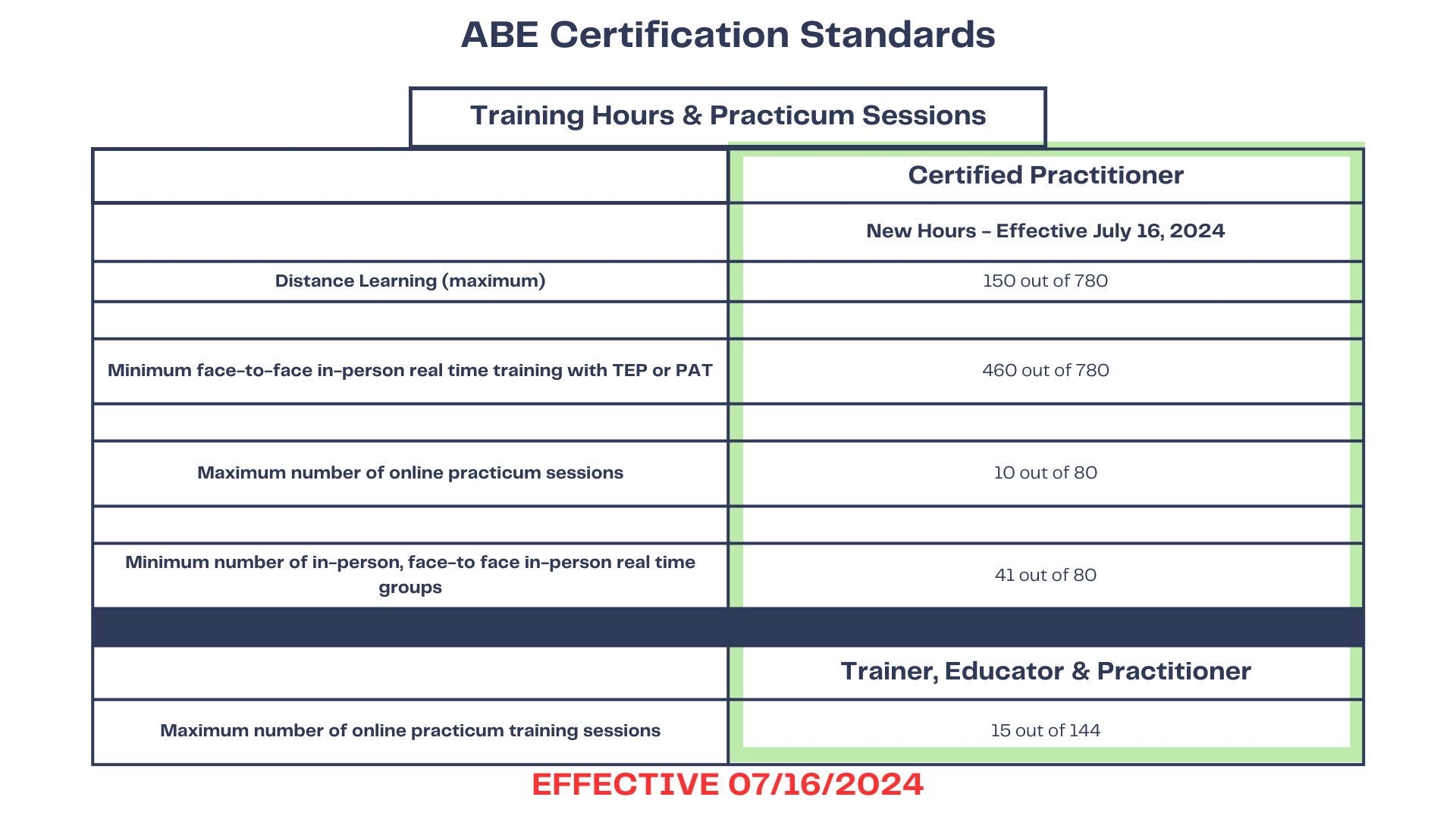TEP Certification Standards
All individuals who wish to be certified as Trainer, Educator, and Practitioners must have prior certification as a practitioner and be formally admitted as a practitioner applicant for trainer (PAT). The PAT will, in consultation with a primary and secondary trainer, develop a plan of action towards meeting the following requirements in not less than three years. Instructions for applying for PAT status are listed on the home page of this website.
1. PROFESSIONAL DEVELOPMENT
A. The PAT candidate must document a minimum of 100 hours of post-graduate professional development in psychodrama, sociometry and group psychotherapy and/or related fields.
B. The PAT candidate is expected to attend and participate in local, regional, and national psychodrama conferences and meetings and engage in other appropriate professional memberships and activities.
2. PROFESSIONAL PRACTICE
During a time period of not less than three years, the PAT must conduct a minimum of 144 hours of progressively responsible training of others in closely supervised training workshops in psychodrama, sociometry and group psychotherapy.
3. CONSULTATION
A. The PAT is required to obtain a minimum of 48 hours of supervision from a trainer/educator/ practitioner for the first 144 hours of training workshops. The initial ratio of consultation is one (1) hour for each three (3) hours of training conducted.
B. If more training workshops are offered by the PAT, supervision is required at the minimum ratio of one (1) hour of supervision for every eight (8) hours of training conducted.
4. ENDORSEMENTS OF COMPETENCY
A. Following successful completion of the above minimum requirements for professional development, practice, and consultation, candidates for certification as a TEP are required to obtain three endorsements of professional competency.
B. A primary trainer (TEP), a Secondary Trainer (TEP) and a third professional reference from the candidate’s area of practice are required to complete the endorsement forms.
C. Endorsers must have witnessed a candidate conduct a training work-shop in the areas of psychodrama, sociometry and group psychotherapy on at least more than one occasion within the past three years and must be willing to endorse the PAT for admission to the examination process.
D. Endorsements of competency can not be obtained from family members, personal friends, professional colleagues who are financial or business partners, and colleagues who were on-going group members in the applicant’s training groups.
5. DISTANCE LEARNING
A. Candidates have a maximum of 15 online practicum training sessions out of 144 practicum sessions.

The Examination Process
Individuals who have completed the certification requirements and are formally admitted to the examination process are candidates for certification as a Trainer, Educator, and Practitioner. A PAT must maintain enrollment as a PAT until that person has successfully completed both the comprehensive written examination and the on-site examination.
1. COMPREHENSIVE WRITTEN EXAMINATION
Candidates must successfully complete a comprehensive written examination in the knowledge, skills and ability to conduct training, education and supervision in the fields of psychodrama, sociometry and group psychotherapy.
The comprehensive written examination assesses candidates on seven areas: History, Philosophy, Methodology, Sociometry, Ethics, Research/Evaluation and Related Fields. Candidates must demonstrate knowledge of these areas in the application of each to training, supervision and education.
2. ON-SITE EXAMINATION
The on-site examination assesses the candidate’s ability to teach and train the philosophy, methodology and process of psychodrama, sociometry and group psychotherapy. The training workshop should focus on one of the seven identified competency areas (e.g., see written examination) and must include both didactic and experiential components. A Board appointed examiner will assess the training workshop using a standardized evaluation form.


